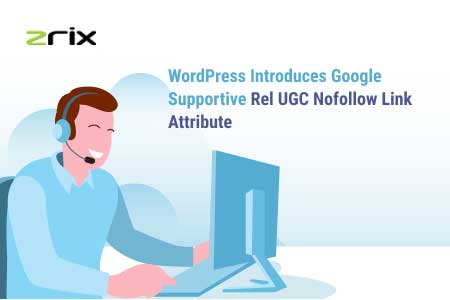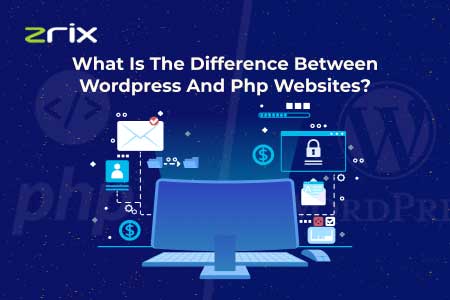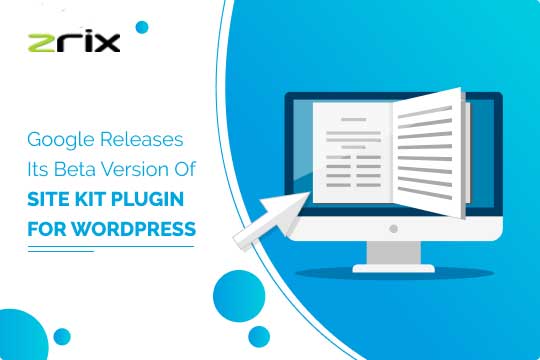WordPress Introduces Google Supportive Rel UGC Nofollow Link Attribute

It’s is around 14 years since the nofollow link became a big part of the SEO (Search Engine Optimization) industry. Nofollow links refer to hyperlinks attached to an anchor text along with an HTML attribute.
Which says rel=”nofollow”
Search engines use this attribute, especially Google! Google, the world’s biggest company, uses it to ignore the link juice, which gets passed from one website to another. Nofollow link SEO attribute is the antonym of Dofollow, which signals to pass the link authority in search engines.
The Nofollow Link Announcement
Recently, in September 2019 Google announced a minor yet important change in WordPress nofollow link attribute yesterday. We covered the whole announcement and now are ready to lay down a report on WordPress Introduces Google Supportive Rel UGC Nofollow Link Attribute.
Google nofollow link got launched in 2005 to prevent comment spamming. Later on, it expanded in usage for any link if you don't want Google to count. Then it was used on links that influence Google’s search results.
Finally, Google started ignoring the no-follow link by pretending as if the link did not exist. Google neither count the link, nor follow it for crawling or indexing, and doesn’t even use it for ranking.
However, now, as per the announcement, Google will again use the nofollow link attribute for ranking purposes. This means that Google now will see the content, anchor text, the attached link, will check if it gets used for spam purposes or organically for ranking purposes.
Though it is a hint to us, will it be used as explicitly directive isn’t a sure announcement!
Other than Google, no one knows if the rel nofollow HTML link will be used for crawling and indexing at some point of time or not.
WordPress announced that WordPress 5.3, which is coming next month in November, will support Google’s link attribute policies by default. Starting November 12, 2019, all dofollow or nofollow links in the comments section will be automatically using the newly announced attributes.
UGC Nofollow Attribute
The UGC (User Generated Content), nofollow link attribute, is a set of written codes that was announced by Google on September 10, 2019. The attribute by Google tells that a link present in the context of user-generated content shouldn’t be trusted.
Also Read: Google Releases Its Beta Version Of Site Kit Plugin For WordPress
Impact of Rel UGC Nofollow Link To WordPress Sites
Any WordPress plugin involved with UGC and links now will have to update their code in order to support the new code.
The Old Callback Code Line: wp_rel_nofollow_callback()
The New Callback Code Line: wp_rel_callback()
However, the announcement from WordPress and Google didn’t specify if the plugins using old code would degrade the website or will make the website.
- Any WordPress Plugin which is involved in UGC and link formations will need updates in their code for supporting the new code.
- The new UGC no follow link attribute will simply work with all search engines.
- As of now, there was no ranking benefit to the user. However, it only tells Google if the link generated is outside the publishers' control or not.
- Lastly, with this new upgradation, the WordPress user will not be facing any inconvenience.
What About Multi-Search Engine Compatibility?
Though Google indicated that it will support rel=ugc, other search engines are silent, yet to give a statement. But we don’t think if there is gonna be any report from other search engines as they have no indicated support for the old code.
However, In order to support all search engines, SEO experts think that WordPress will now start outputting the UGC nofollow such that the content and attached nofollow link for SEO supports all search engines.
Does Rel UGC Nofollow Help WordPress Publishers?
Publishers do not get any benefit by using the UGC Nofollow attribute because this attribute benefits Google as it helps Google search Engine to understand that the link was created by someone who is outside of the publisher's control. Therefore, the link shouldn't be trusted!
Does It Deprecate WordPress Code?
The change in Google supportive Rel UGC no follows link attribute will make WordPress to change its code. Here we have tried explaining how WordPress will make changes:
In WordPress 5.3,
wp_rel_nofollow_callback() gets deprecated in favor of more generic callback function wp_rel_callback(), add other rel attribute values to a specified link.
wp_rel_callback() is used by the existing wp_rel_nofollow() function which adds a single nofollow value. But, with the new wp_rel_ugc() function, developers can easily add both “nofollow” and “UGC” values to the rel nofollow link attribute.”
The below example by WordPress clearly tells us how to use the new code:
$link = ‘<a href=”example.com”>User generated link example</a>’;
$ugc_link = wp_rel_ugc( $link );
echo $ugc_link;
// output: <a href=”example.com” rel=”nofollow ugc”>User generated link example</a>
This much of coding in WordPress is not a very huge task, but to do so you need to hire certified WordPress developers in USA. A knowledgeable developer will bea easily to change your website upon requirements; such as of nofollow right now!
Also Read: What Should you opt for WordPress.com or WordPress.org?
When To Use Nofollow Link Attribute?
rel= “sponsored” The sponsored attribute is meant for advertisements, sponsorships, and compensation agreements. If you are using the “sponsored” attribute as like genuine links, then the link will not pass the link juice.
Furthermore, if you try to fake sponsored/paid links as “ugc,” then Google will give you a penalty!
rel= “ugc” As the forums and comments are increasing, the usage of the “ugc” attribute in place of “nofollow” will make some good changes on websites.
For example, a website like Wikipedia, which is dependent on user-generated content and links, will now replace the rel= “nofollow” to rel= “ugc” attribute. Therefore, the sites receiving linkbacks from Wikipedia or similar sites would see an increase in rankings.
After this announcement if, you are planning to change the existing Nofollow attribute within your site, then don’t do it because Google will continue ignoring the nofollow link till March 2020.
We all know that Google always prefers to remain tight-lipped on it’s ranking factors. Not only this but the search engine giant never make such type of critical announcements.
Now SEO experts believe that it is a new shift by Google, which for recognizing the nofollow attribute, which in the near future can become one of the ranking factors.
Maybe it is because of more and more number of websites prefer nofollow attribute. Therefore, Google corroborated with this fact to uplift other sites in the game of ranking purposes.
As a result, some WordPress Development Services in USA aren’t happy while some are happy as they hope to get a good ranking for their websites.













